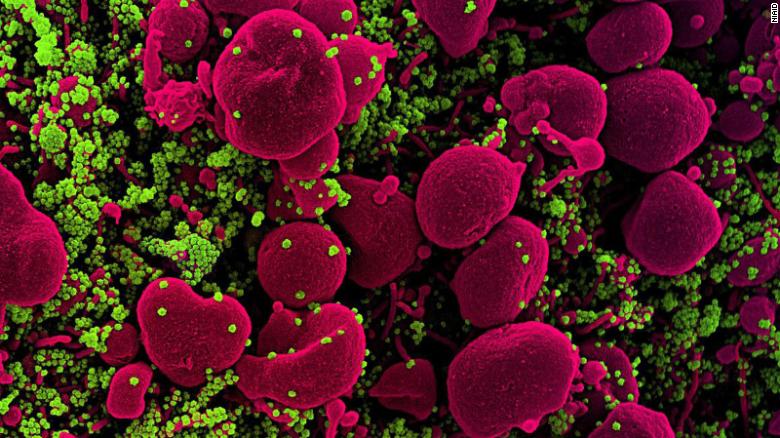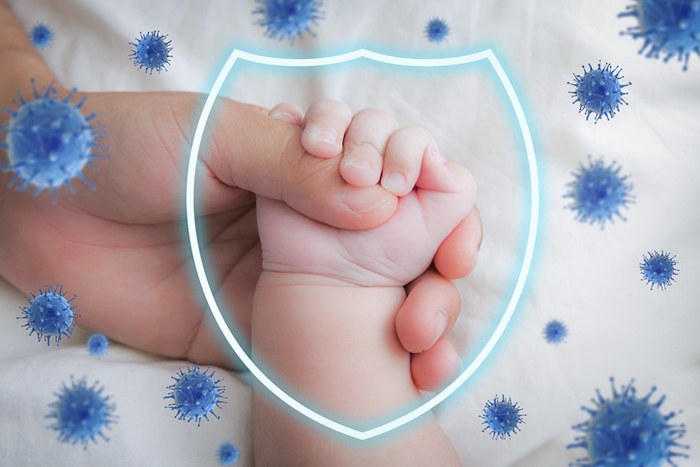Does getting infected with ómicron result in immunity to the virus?
0:58
(CNN) --
Pfizer/BioNTech's covid-19 mRNA vaccine provides an additional layer of protection against reinfection for people who have previously been infected with covid-19, as well as increased immune durability over time, according to two studies published Wednesday in the New England Journal of Medicine.
The studies offer more insight into the concept of hybrid immunity, that is, when previously infected people, who have "natural immunity," gain vaccine-acquired immunity.
One of the studies, conducted outside of Israel, found that among people who had recovered from Covid-19 infections, reinfections were four times more common in those who did not receive vaccinations than in those who did after the primary infection.
However, the study, which involved more than 149,000 people with a history of covid-19 infection, also found that the effectiveness of Pfizer's vaccine is lower in adults over 65 years of age.
Epidemic, endemic and herd immunity... Where is covid-19 going?
5:05
The vaccine was 82% effective among people 16 to 64 years old and only 60% effective in people over 65 years old.
This study was conducted between March 1, 2021 and November 26, 2021 and covered the rise of the delta variant in Israel.
The study also found that there was no significant difference in vaccine effectiveness whether people who were previously infected received one or two doses, supporting evidence from other studies that showed one dose was sufficient to protect people from re-infection. people with previous covid-19 infections.
advertising
These findings may have implications for vaccination policies.
Shane Crotty, a virologist and professor at the Center for Vaccine and Infectious Disease Research at the La Jolla Institute for Immunology, told CNN that it would be "pretty reasonable" to have a policy in the US that would require people with prior infections from the coronavirus received only one dose of a vaccine, according to the results of this research.
Crotty was not involved in any of the studies.
Ronen Arbel, principal investigator of this study and a health outcomes researcher at Clalit Health Services in Israel, believes that more countries should adopt a policy like the one implemented by the Israeli Ministry of Health in March 2021, when it recommended a single dose of vaccine for people who had recovered from covid-19, to be administered three months after their primary infection.
CDC: Vaccine protects more than immunity after contagion 1:43
"If he recovered from covid-19, it's like he had a primary vaccine," Arbel told CNN.
"You have to get vaccinated, but once is enough. It's like a booster."
The second new study, conducted in the UK, showed that immunity is more durable and prolonged in people who had recovered from covid-19 infection before receiving a Pfizer vaccine.
Among participants who were not previously infected, two doses of the vaccine were associated with an 85% reduction in the risk of infection two months after vaccination.
However, that number dropped to 51% six months after vaccination.
In contrast, those who were vaccinated after recovering from covid-19 maintained greater than 90% protection more than a year after primary infection and more than six months after vaccination.
"It may be that seeing the whole virus in some way to produce broad immune responses coupled with a deepening of the immune response with vaccination (either before or after) confers superimmunity," said Dr. Monica Gandhi, associate chief of the Division of HIV, Infectious Diseases and Global Medicine at the University of California, San Francisco, who was not involved in any of the studies.
The UK research used data from the SIREN study on health workers.
The more than 35,000 participants were followed between December 7, 2020 and September 21, 2021, and were tested for COVID-19 PCR every two weeks.
It found that among people who were previously infected, the risk of reinfection was 86% lower than the risk of primary infection in unvaccinated people.
However, this protection fell to 69% over a year after infection, indicating that primary infection alone does not provide long-lasting immunity.
Those who do not get vaccinated will get infected, according to infectologist 4:03
According to Crotty, hybrid immunity allows the body to create more diverse antibodies to neutralize a wider variety of variants.
This also happens with full vaccination and a booster, but it happens much faster with infection followed by vaccination.
"Hybrid immunity has a lot of added bonuses. One, which these studies are currently showing, is durability. Durability is pretty robust," Crotty said.
Although both studies add to growing evidence that hybrid immunity may offer greater protection against future COVID-19 infections, neither includes data on the rise of the highly transmissible omicron variant.
"The overall risk of re-infection is much higher with omicron than with delta. Does the vaccine protect [against omicron]? We can assume it does, but we don't have the data yet," Arbel said.
Covid-19









